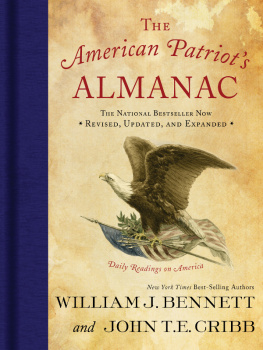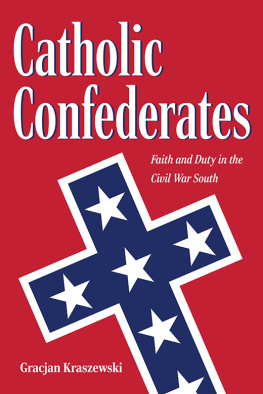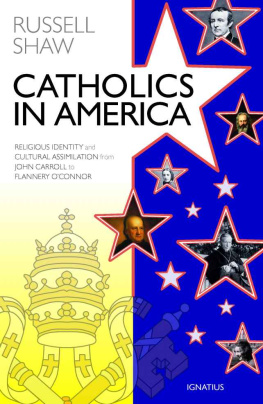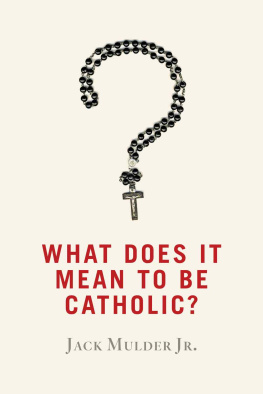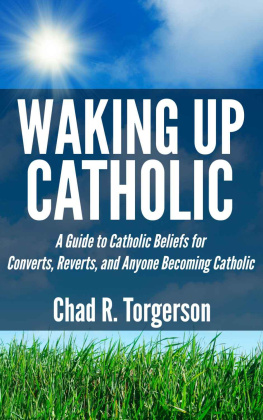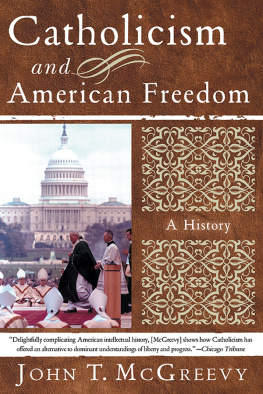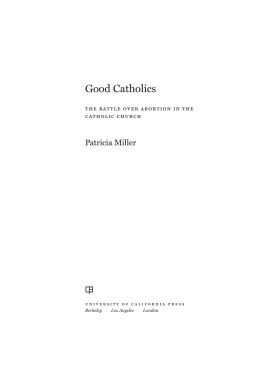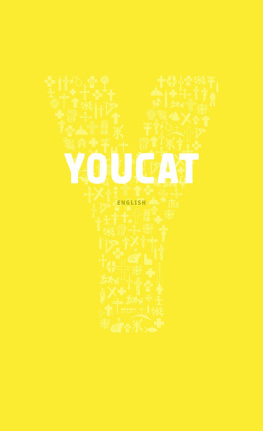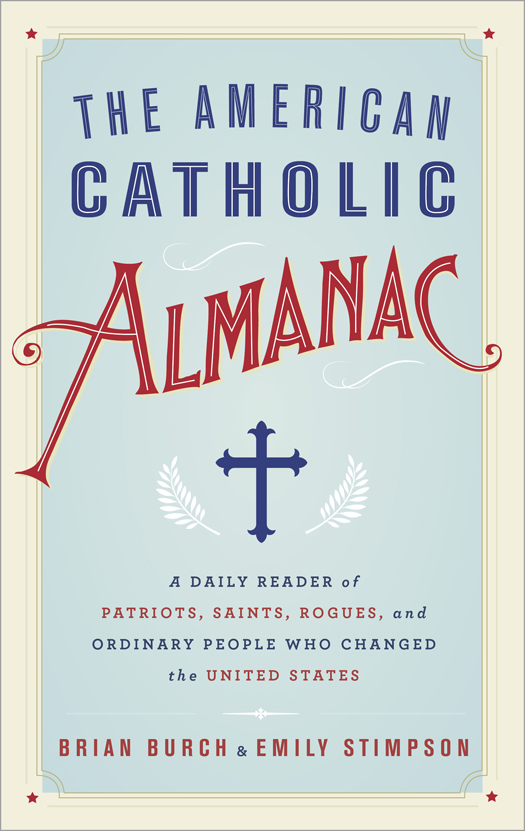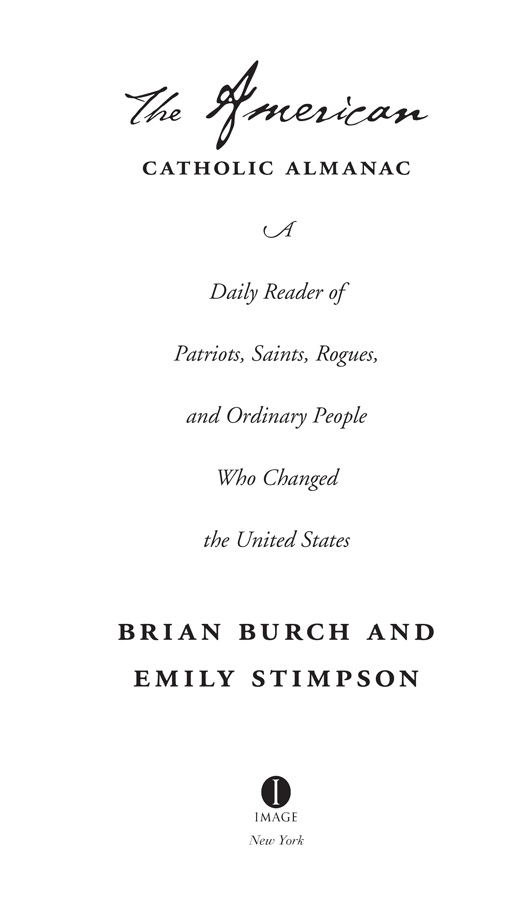Copyright 2014 by CatholicVote.org Education Fund
All rights reserved.
Published in the United States by Image, an imprint of the Crown Publishing Group, a division of Random House LLC, a Penguin Random House Company, New York.
www.crownpublishing.com
IMAGE is a registered trademark and the I colophon is a trademark of Random House LLC.
Library of Congress Cataloging-in-Publication data is available upon request.
ISBN 978-0-553-41872-9
eBook ISBN 978-0-553-41873-6
Cover design by Jessie Sayward Bright
v3.1_r1
Contents
PREFACE
Books take you places you never expect to go. Thats true for their readers, and its doubly true for their writers. When you sit down to write a book, you think you know where youre headed. But along the way, something happensobstacles arise, different paths open up, or new ideas present themselves. By the time you reach the end, you find precious little has gone as planned. And yet, youre incredibly grateful for that.
This book was no exception.
When we first set out to write The American Catholic Almanac, we wanted to accomplish two things. First, we wanted to tell the stories of the men and women who built the Catholic Church in America. Second, we wanted to demonstrate just how much America has benefited from what those men and women did.
Our reasons for that were simple.
Many American Catholics have studied the history of the Faith in Europe and know about the lives of the saints who built the Church there. We know about the Crusades, the Inquisition, the martyrs of the English Reformation, and Saints Francis and Clare.
But for all that American Catholics know about Church history elsewhere, much of our own history remains a mystery. We dont know about the suffering and sacrifice that went in to building Catholic parishes in Maine and Catholic schools in Oregon. Only a few among us have heard of the Venerable Father Samuel Mazzuchelli, the great apostle of the Upper Midwest, or the Most Reverend Joseph Machebeuf, the first bishop of Denver. In most corners of America, the work of The Angel of the Deltathe laywoman Margaret Haugheryor The Angel of Andersonvillethe priest Peter Whelanhas simply been forgotten.
Because we dont know those stories, because we dont know what those early American Catholics sacrificed, we also dont know how much weve gained. And that puts us at a serious disadvantage, especially when it comes to the ongoing debate over the place of religion in public life.
THE AMERICAN CATHOLIC WITNESS
In the years that immediately preceded the American Revolution and for more than a century afterwards, Americas dominant Protestant majority questioned the compatibility of Catholicism and democracy. They couldnt see how Catholics, with their medieval superstitions and papal loyalties, could be good citizens. Accordingly, many attemptedthrough both law and mob violenceto silence Catholic voices.
Ultimately, they failed. But today, anti-Catholicism has returned with a vengeance. Growing numbers of Americans again contend that Catholic voices dont belong in the public square, and growing numbers of Catholic dioceses again find themselves fighting legislation that limits Catholics ability to practice their faith. Behind both those problems lurks a creeping militant secularism, which views religious faith in general (and the Catholic Faith in particular) as harmful to a free society.
The witness of the past, however, tells a different story than the polemics of the present.
That witness shows us Catholics, such as Saint Marianne Cope and Mother Frances Warde, building hospitals and schools for Americas immigrants. It also shows us the Venerable Father Nelson Baker and Dorothy Day establishing institutions to serve the poor; Cesar Chavez and Lucy Burns fighting for the rights of the marginalized; Commodore John Barry and Rear Admiral Jeremiah Denton serving bravely in battle; and countless other Catholics living ordinary lives with extraordinary virtue.
The Catholic Faith wasnt incidental to what these men and women accomplished; it was central. It motivated and inspired them. It guided them. It shaped their thinking and formed their characters. You cant tell their stories without also telling the story of their faith. And you cant hear those stories without coming to a deeper understanding of what America owes to the Catholic Church.
LESSONS FOR THE NEW EVANGELIZATION
So, in the beginning, thats what we wanted to dotell stories and demonstrate how the Catholic Faith helped shape America. We believe weve done that. But along the way, we found more than just greatness in the past. We also found guidance for the present.
In America and elsewhere in the West, the Christian faith is dying. According to a 2012 report by the Pew Research Center, none is the United States fastest-growing religious affiliation, with one in five Americans now identifying as an atheist or agnostic. The Catholic Church has responded to that crisis of faith by calling for a New Evangelizationa renewed proclamation of the Gospel. Many within the Church, however, dont quite understand what the New Evangelization entails. All too often, Catholics find themselves at a loss about how best to lead others to Christ.
But the men and women in this book can show us the way.
In the lives of early American missionaries such as Bishop John Dubois, Bishop Simon Brut, and Father John Bapst, we see conviction, not compromise. And in the lives of religious women such as Fanny Allen, Saint Frances Cabrini, and Saint Rose Philippine Duchesne, we see selflessness, not self-absorption. In the lives of both priests and religious, we see poverty, simplicity, and humble acts of service. We see men and women nursing victims of yellow fever and cholera, building parishes and schools, tending to the poor, and proclaiming the Gospel in the most dangerous and remote corners of America.
What we see are men and women who thought little about their own comfort and much about Christ.
Similarly, among the laity, we see Catholics such as Blessed Carlos Rodriguez, Venerable Pierre Toussaint, and Catherine Doherty, who lived what they believed. They incarnated the Churchs teachings in the businesses they built, the laws they wrote, and the charities they founded. They prayed. They loved. They served.
And it worked, all of itthe humility, the service, the sacrifice. It won people to the Faith. It changed minds, and it transformed hearts. It built the Church in America from the ground up, giving rise to greater Catholic devotion and a flourishing Catholic intellectual life.
What worked once can work againbut only if Catholics know the stories of the people who made it work, only if we know our story as American Catholics.
In the end, the best gift we received from writing this book was getting to know the men and women in these pages. They charmed us, amused us, inspired us, and encouraged us. They brought us to a deeper faith in Christ and a deeper love for the Church. Most of all, they helped us see what a great treasure weve received from those who went before us.
Without realizing it, we took much of that treasure for granted. We didnt fully know what we had. We didnt realize what a great blessing it is to call ourselves not Irish Catholics or French Catholics or German Catholics, but American Catholics. Now we do.


